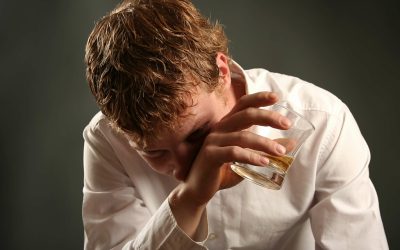Does Drinking Alcohol Make You Dehydrated?
Nearly 1 in 4 adults (23 percent) said that they increased their alcohol consumption during the pandemic, according to a 2021 report from the American Psychological Association. Drinking a lot of low-alcohol drinks can also add up to a very thirsty evening, though. One standard drink, according does alcohol dehydrate you to American Addiction Centers, should contain around 0.6 ounces of pure alcohol. You can get that amount from 12 ounces of beer with 5% alcohol, 8 ounces of malt liquor with 7% alcohol, one shot (or 1.5 ounces) of hard liquor with 40% alcohol, or 5 ounces of wine with 12% alcohol.
Any alcoholic drink, beer, wine, vodka, whiskey, rum, gin, or tequila, will inhibit the body’s production of vasopressin, which will cause a person to pee more and increase the chances of becoming dehydrated. That said, the higher a drink’s alcohol content, the more of a diuretic it is believed to be. Our level of hydration can affect the way we feel and function throughout the day. And that is especially true after a night out of drinking alcohol.Dehydration is very common after excessive alcohol consumption. Classic symptoms after a big night out can include a dry mouth, fatigue and a headache. Not taking enough fluids to replace your losses can cause a person to become dehydrated.
Which Is the Least Dehydrating Alcohol?
For example, we lose water from our skin through sweating and from urine. The body cannot store water, therefore we need to take in fresh supplies every day to replenish these losses. Dehydration occurs when the water content of the body is too low.
The subjects still get the initial spike in urine flow after the first drink, but then urine flow dies down. Moderating your intake of energy drinks and alcoholic beverages is an easy way to prevent dehydration. Drinking responsibly can reduce your chances of getting dehydrated after drinking alcohol.
Organic Wine and Liquor
Most reach for water to rehydrate, but in most cases that’s not enough to quickly and properly rehydrate you. Water doesn’t have enough electrolytes and/or vitamins to replace the electrolytes and vitamins lost due to dehydration. Waking up with dry mouth, throbbing headache, fatigue, brain fog, and nausea are all signs of alcohol-induced dehydration. While you can enjoy alcohol in moderation and make other lifestyle choices that will maintain your hydration, alcohol will never contribute to your hydration goal.

This can impact fluid intake and increase the risk of dehydration. While it may seem like a simple task, this is one of the most common causes. If a person has been drinking and is experiencing alcohol dehydration symptoms, they need to restore the body’s fluid balance. The following steps will help a person to rehydrate properly and recover from alcohol dehydration. That makes beer the clear contender as the least dehydrating, with a big caveat.
Why does alcohol cause dehydration?
Interestingly, a review of 49 studies even reported that caffeinated energy drinks, wine, and spirits can all significantly increase urine production (14). When a person has very high blood sugar, their body may borrow water from other areas to balance out the volume in the cells. Higher blood sugar may also cause the body to urinate more to get rid of this excess sugar, which can influence dehydration.
- Water is obviously the best source of fluid, but realistically, do other beverages, including alcohol, count toward your daily quota, and if so, how much?
- However, alcohol’s dehydrating effects will be somewhat reduced in some of the “lighter” alcoholic drinks.
- Reaching for hydrating beverages is the best way to alleviate a hangover’s unpleasant effects — but not every liquid fits this bill.
- According to a small study in 11 men, consuming beer with a 5% alcohol content after exercise increased urine output significantly more than consuming a sports drink did (10).
Without a hangover, you’ll also be available for brunch the day after a successful date—just by leaving out the Mimosas and focusing on the conversation. I have also been told that anyone insisting on alcohol in those kinds of experiences can be seen as a red flag too, now that we have more of a conscious culture of sobriety for health reasons. “The focus was much more on our connection, who we were as people, our dreams, and the future,” he said. “Totally without drama. Just good company and getting to know each other properly.”
These BIPOC Wine Podcasts Are Changing the Narrative
Hangover symptoms are unpleasant and may include nausea, tiredness, headaches, vertigo, and sensitivity to light and sound. Alcohol’s diuretic effects work by decreasing the production of vasopressin. “Essentially, when you’re dehydrated, you’ll feel alcohol’s effects sooner and for longer,” Pfau says. Alcohols like whiskey and brandy have high levels of congeners, including tannins and acetaldehyde.
